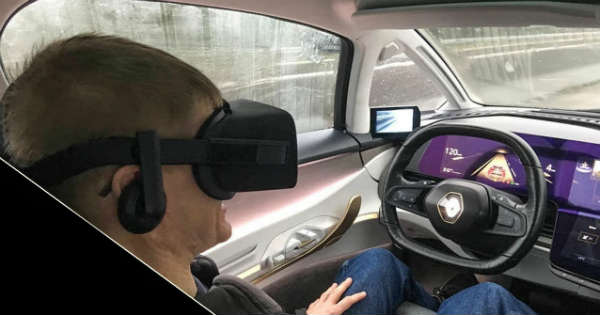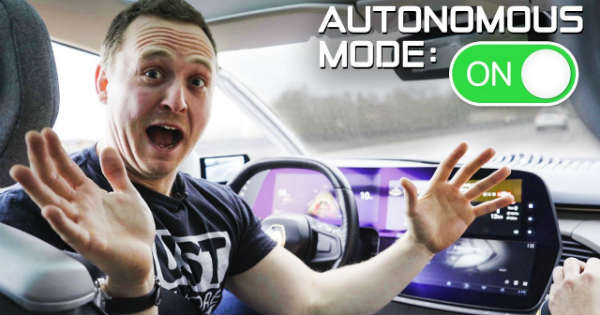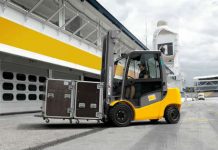Recent developments in the UK have indicated a strong step forward in the country’s adoption of autonomous vehicles. The King’s Speech, held in November, included a key announcement regarding new legislation to govern the mass deployment of driverless cars. As Mark Trimbee, CEO of personalised number plate supplier Regtransfers writes, this move is particularly important, shifting the focus of responsibility in the event of accidents involving pedestrians from users to the manufacturers. More than this, there are core safety considerations that must be addressed before widespread adoption is possible – or advisable.

The Automated Vehicles Bill is poised to position the UK as a leader in the high-tech, fast-growing autonomous vehicle sector. The bill is not just a technological leap; it is a comprehensive safety-centric approach designed to ensure the responsible deployment of self-driving cars.
In this bill, the government hopes to unlock the potential of the autonomous vehicle sector, contributing significantly to the UK economy. The market for these vehicles is expected to be valued at £42 billion, with 38,000 skilled jobs created by 2035. This move is seen as a key step to launch the UK into a forefront position in this rapidly evolving field.
Prioritising Safety and Accountability
Central to this legislative change is the emphasis on safety. The new framework holds manufacturers accountable for the actions of their self-driving vehicles – not the user of the vehicle – ensuring that safety is at the forefront of this technological advancement at the earliest possible intersection – the manufacturing process. This shift is expected to improve transport safety, efficiency, and accessibility, positively impacting the lives of millions across the UK.
Addressing the Challenges
While the introduction of this legislation is a promising development, several challenges remain to be addressed. These include security concerns, with self-driving vehicles potentially being susceptible to hacking, and the ethical implications of decision-making in complex road situations. Moreover, the high initial costs of these vehicles and the possibility of machine error continue to be significant considerations.
Cybersecurity Concerns
As we increasingly rely on smart devices and technology, the introduction of fully automated vehicles brings its own set of cybersecurity risks. The reliance of these vehicles on computer systems makes them potential targets for hacking, which could have dire consequences. Especially concerning is the possibility of widespread security breaches if numerous automated vehicles are connected to the same network, heightening the risk of large-scale cyber attacks.
High Entry Cost
The potential advantages of self-driving cars are clear, but initial investment is, at present, rather considerable. Currently, driverless cars cost over £50,000 in the UK – a price out of reach for the majority of the country’s residential population. That said, as technology advances it’s likely that the cost of these vehicles will decrease, making them more attainable for the average buyer.
Ethical Implications
Automated vehicles also introduce complex ethical dilemmas, particularly in scenarios where there are no clear-cut decisions that guarantee complete safety. In situations requiring a choice between two potentially harmful outcomes, either to pedestrians or passengers, the decision-making logic programmed into these vehicles becomes a matter of ethical concern. This places manufacturers in a delicate position, as they navigate the moral implications of the decisions programmed into these vehicles.
Risk of System Errors
As with any technological innovation, automated vehicles are not immune to system errors. The high dependency on automation increases the risk to both passengers and pedestrians should a malfunction occur. Such errors could lead to serious incidents, like unexpected activation or failure of critical systems, potentially causing accidents or even fires due to battery malfunctions.
Safety Incidents
A number of news stories emerging from the autonomous vehicle sector have raised understandable safety concerns. Last year, there were reports of approximately 400 accidents involving self-driving car systems. Notably, in the United States, autonomous vehicles from General Motors’ Cruise division faced challenges, including system vulnerabilities to hacking, difficulties in detecting road hazards, and issues in recognizing children. These issues led to a comprehensive recall of 950 vehicles for software updates. While companies in the autonomous vehicle industry assure the public of their systems’ safety, these incidents bring into question the current state of readiness of this technology.
Conclusion
Despite these lingering concerns, the Automated Vehicles Bill has been received positively by MPs on the Transport Committee, suggesting a growing consensus on the need for this technology and its responsible implementation.
As the UK embarks on this developing phase in transportation, balancing innovation with safety and responsibility remains key. The road ahead for autonomous vehicles in the UK is filled with promise and potential, yet demands careful navigation to ensure that the integration of this technology is successful, beneficial and safe for all.






















